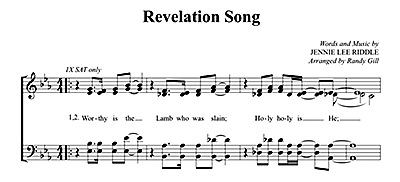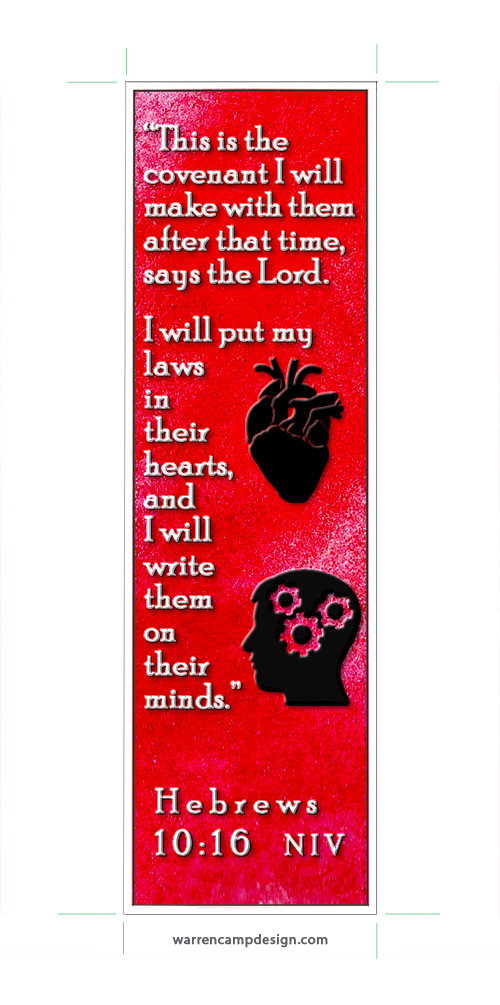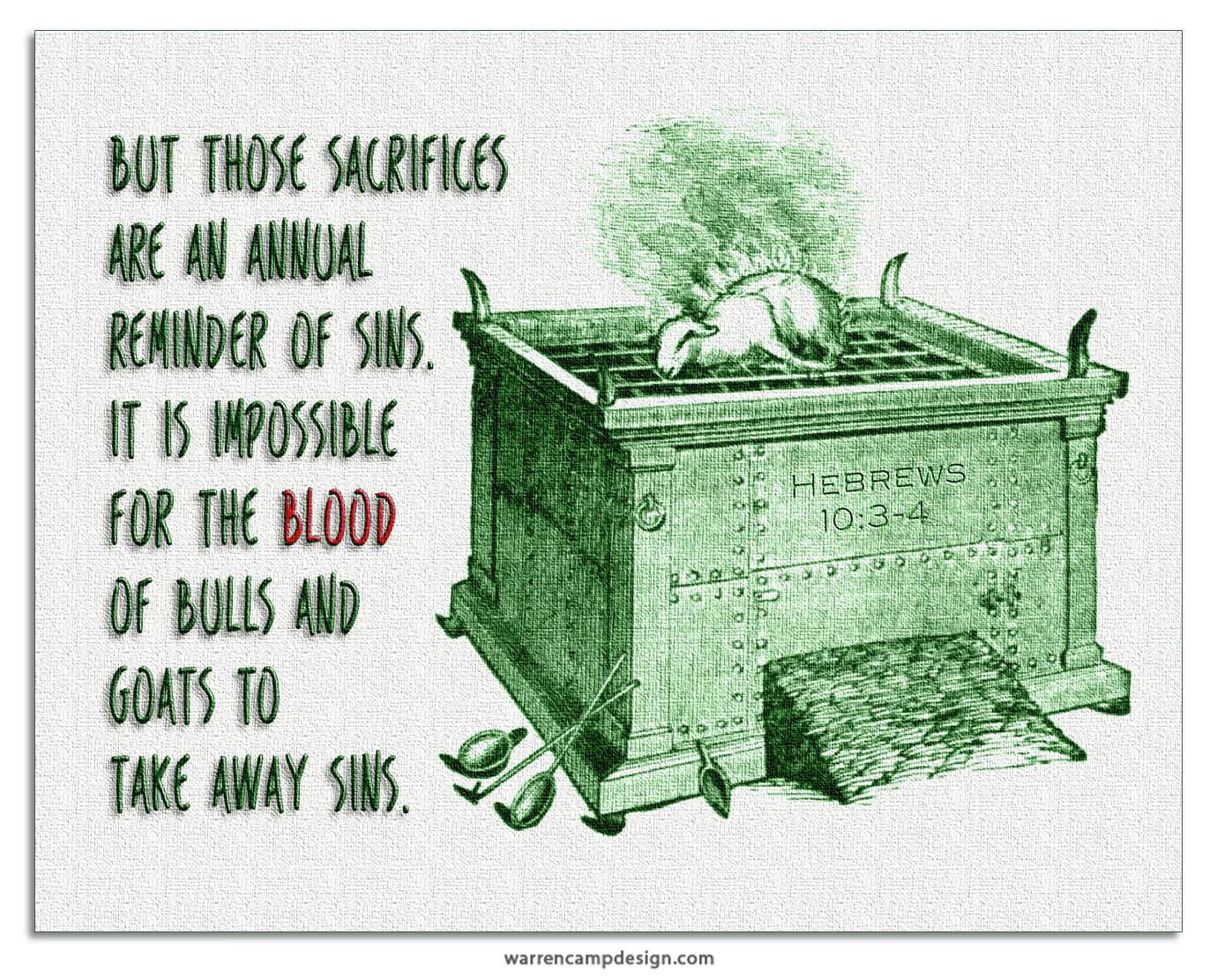Hebrews 10:1–18 . . .
“Christ’s Sacrifice: Once, for All”
In Warren's previous commentary on 9:16–28, titled "The Value of Jesus’ Shed Blood," a three-part emphasis was made: (1) Christ’s mediation of the new covenant; (2) his tabernacle is a superior sanctuary to the old covenant's earthly one; and (3) because Christ’s blood is superior to animal blood, his personal sacrifice didn't need to be repeated, as did the old covenant's sacrifices.
We should expect some repetition in today's passage. After all, authors intentionally conclude their argument by repeating major points, then underscoring them. Thus, much of what we'll read in today's text isn't new. And, not only will our author repeat significant points that he's already made, he'll also cite Old Testament Scriptures to strengthen his argument, especially in vv. 5–10, wherein he'll apply David's words to Jesus, the Messiah.
To better understand the meaning of today's text the author triumphantly proclaims that, unlike the sacrifices prescribed in "Leviticus," our Lord’s sacrifice wasn't only necessary, it was entirely sufficient for the atonement of our sins while reconciling us to God.
A “Complete” Solution Was Impossible (10:1–4)
The old covenant or plan was only a hint of the new plan's good things. The old Law and its Levitical priesthood, with its many different requisite sacrifices, was only a shadow of "the good things that are coming," namely the new covenant, which was inaugurated by Jesus' incarnation and sacrificial death.
Christ’s Sacrifice: Once for All
10 1 The law is only a shadow of the good things that are coming — not the realities themselves. For this reason it can never, by the same sacrifices repeated endlessly year after year, make perfect those who draw near to worship. 2Otherwise, would they not have stopped being offered? For the worshipers would have been cleansed once for all, and would no longer have felt guilty for their sins. 3But those sacrifices are an annual reminder of sins. 4It is impossible for the blood of bulls and goats to take away sins (10:1–4).
The writer's opening verse speaks of "a shadow," which indicates a reality that has no substance in itself. The text describes the Mosaic Law as "only a shadow of the good things that are coming," which are those immediately connected with sacrifice and priesthood, such as eliminating sin and obtaining perfection. Realize that copies rely on the true existence of the original; a shadow copy can't occur without the presence of the original person who creates that shadow. The original old order prepared for the new order, hinting at what it would be like. Christ's priesthood is the true priesthood that the old Aaronic priesthood foreshadows.
Levitical sacrifices were made year after year; such repetition proved their incompleteness and ineffectiveness. Because that old Law wasn’t complete in itself, it couldn’t have provided completeness for those Israelites who followed it. No matter how many sacrifices were offered yearly, they never provided complete perfection; if they had, worshipers would have gone merrily on their way, no longer dragged down by their ongoing sinfulness. But instead of removing the awareness of sin, when those animal sacrifices were repeated over and over, they actually heightened sin's awareness and guilt. They were a reminder of past sins that hadn't been removed. [Note: The author has repeated the word "sacrifice" twenty-one times in the NIV, as shown on this list.]
Obviously, bull or goat blood can’t eradicate sin. These four opening verses stress that the regulated Levitical practices of Mosaic Law are unable to provide true atonement for sin, concluding that "It is impossible for the blood of bulls and goats to take away sins." Bulls, goats, sheep, rams, and so on, are mere animals, regardless of how unblemished they might be; they can't effectively replicate human beings in God's eyes because they aren't made in his image and can't authentically represent man and woman. Long before, Isaiah had quoted God, saying, "I have no pleasure in the blood of bulls and lambs and goats" (Isaiah 1:11). Only Christ's sacrifice can make a person perfect.
To Do the Will of God (vv. 5–10)
The essence of vv. 1–4 is that the Law was a prototype of the good things to come in Jesus. But it was, nevertheless, unable to perfect what only Jesus was capable of doing. "Therefore" (v. 5) we read of the incarnation of Lord Jesus and his infinitely superior priesthood wherein he continually and completely atones for man's sins and cleanses man’s guilt-ridden conscience due to sin, once for all.
5Therefore, when Christ came into the world, he said: “Sacrifice and offering you did not desire, but a body you prepared for me; 6with burnt offerings and sin offerings you were not pleased. 7Then I said, ‘Here I am — it is written about me in the scroll — I have come to do your will, my God’” [quoted from Psalm 40:6–8]. 8First he said, “Sacrifices and offerings, burnt offerings and sin offerings you did not desire, nor were you pleased with them” — though they were offered in accordance with the law. 9Then he said, “Here I am, I have come to do your will.” He sets aside the first to establish the second. 10And by that will, we have been made holy through the sacrifice of the body of Jesus Christ once for all (10:5–10).
Something different and better was needed: Messiah's sacrificial death, made possible by Jesus' incarnation and priestly ministry. That "bull and goat blood can’t get rid of sin" is what's meant by this prophecy spoken by Jesus (v. 5): You don’t want sacrifices and offerings year after year; you’ve prepared for me a body to sacrifice. It’s not fragrance and altar smoke that whet Your appetite. So I said, 'I’m here to do it Your way, O God, the way it’s described in Your Book.'
In vv. 5–7, the author draws our attention to Psalm 40:6–8 from the Septuagint, which celebrates deliverance from disaster. The Psalmist affirmed that God prefers obedience over sacrifices. We're told therein that although God had authorized animal sacrifices, he didn't delight in them. Instead, it was God’s plan for animal sacrifices to point toward an ultimate sacrifice — Jesus — who died on the cross as the ultimate sacrifice. By his once-for-all-of-time sacrifice, his promises of remission of sins and a renewed relationship with Father God was secured. That's God’s new covenant pledge, fulfilled in Jesus’ death, written on believers’ hearts, first asserted in Jeremiah 31, then repeated here in vv. 11–18.
Verses 9 and 10 make it clear that the old sacrificial system was over. However, in reality, many Jewish Christians continued to make those animal-blood sacrifices at the temple, which was the one futile practice that our "Hebrews" author attempted to correct. On the cross, Jesus Christ became what the lamb on the altar, but with a significant difference: Under the old covenant, every time sin was committed, another animal had to die. Jesus, however, willingly offered himself once, for all, to atone for the sin of the entire world! Jesus is the Lamb who died to ransom the slave of sin. That's why 𝄞 "Worthy is the . . . Lamb who was slain; Holy, holy is he."
Sitting at Father God's Right Hand (vv. 11–14)
See, next, how our author contrasts the sacrifices made under the old covenant (the Law) with those made by our Lord who inaugurated the new covenant, in these three examples, comparing vv. 11 and 12: (1) old covenant priests remained standing while Jesus had sat down; (2) priests offered the same sacrifices, again and again, while Jesus offered only one sacrifice; and (3) sacrifices of the old order didn't remove one's sins, however, Jesus' one-time-only sacrifice perfected man for all time.
11Day after day every priest stands and performs his religious duties; again and again he offers the same sacrifices, which can never take away sins. 12But when this priest had offered for all time one sacrifice for sins, he sat down at the right hand of God, 13and since that time he waits for his enemies to be made his footstool. 14For by one sacrifice he has made perfect forever those who are being made holy (10:11–14).
We should note one peculiarity of the tabernacle ritual: It contained no chairs. Priests weren't permitted to sit; they instead performed their ministries while standing. Our author maintains in vv. 11-12 that that symbolically shows their work as being unfinished and their repeated sacrifices unable to finally remove sins. But when Christ had offered himself as a sacrifice for all time, he sat down at God's right hand (1:3; 8:1; 12:2) for two excellent reasons (vv. 13–14): (1) to do nothing more than await the outworking of the salvation he'd accomplished on the cross; and (2) his sacrifice was so effective that it guaranteed eternal perfection of all who were "being made holy."
Quoting frequently from Scriptures, to lend authority to his arguments, in vv. 12–13 the author cites Psalm 110:1–2. Our Lord had sat down after he'd finished the work he'd done on Calvary's cross, atoning for everyone's sins. Obviously, his saving work was finished. However, "this priest" Jesus, who "sat down at the right hand of God," still has another work he needs to do when he comes to earth again; he'll judge those rebellious souls who'd rejected him and his atoning efforts that he made made at Calvary.
Pastor/teacher/elder Bob Deffinbaugh writes this about the Lord Jesus' "sitting" and "standing": "There is a sense, then, in which we can say this: Our Lord is currently 'sitting' at the right hand of the Father, but one of these days He is going to 'stand up.' When He stands, those who have rejected Him will fall down before Him (Philippians 2:9–11).
The Son’s Offering Is Conclusive (vv. 15–18)
Next, we come to the priests' function that was eliminated. By making his once-for-all sacrifice, Jesus put those tabernacle and temple priests out of work. In the remaining four verses, as a follow-up to what he'd said in 8:10, our author reiterates the conditions of the human heart, as a result of the new covenant (see Jeremiah 31:33–34). Reading the text of Jer. 31:33 and Psalm 40:6–8 (shown above), in which the two passages speak of God writing his law on man's hearts, Lord Jesus has, hence, set an example for us of joyful obedience, not reluctant obedience. Carefully following the Scriptures, we should respond to our calling, just as our Lord responded to his.
15The Holy Spirit also testifies to us about this. First he says: 16“This is the covenant I will make with them after that time, says the Lord. I will put my laws in their hearts, and I will write them on their minds.” [from Jer. 31:33]
17Then he adds: “Their sins and lawless acts I will remember no more” [from Jer. 31:34].
18And where these have been forgiven, sacrifice for sin is no longer necessary (10:15–18).
To highlight what condition completely fulfills the new covenant's promises, the author quoted Jeremiah 31:33–34, introducing it with the words "The Holy Spirit also testifies." This reveals once more his conviction that the prophets wrote through God's inspiration and authority. While v. 16 highlights a new understanding of morality through one's mindful regeneration (1 John 5:20), v. 17 reminds us again of the marvel of total forgiveness of sins, which leads to the simple but conclusive statement of v. 18, that where sins have been forgiven, no further sacrifice would be needed.
Let's get personal We who live on this side of the cross may be tempted to think lightly of our sins because we've never sacrificed an animal or seen blood flowing from an innocent lamb's throat, as a result of our wrongdoing. Nor did we watch our Lord's crucifixion on the cross, bearing God's judgment for our sins. The only cost we actually see and feel involves the consequences we suffer for our rebellion and disobedience.
As difficult and painful as it may be, let's seriously consider what our sins cost the Savior. If we allow our hearts to be broken, our worship and gratitude will overflow; in response, we'll be "made holy" and continue to live a holy life.
May we never forget this fact: What Christ has accomplished never needs to be repeated! According to God's plan, Jesus' sacrifice was necessary, sufficient, and totally effective at solving our problem of sin and our possible estrangement from God. Thankfully, the once-for-all sacrifice of Jesus in his Melchizedek priesthood provides perfection and completion. Gone is the old covenant! The new covenant is alive; it remains in force for all who truly believe. "The old life is gone; a new life has begun!" (2 Cor. 5:17b NLT).
- Q. 1 In what ways does Christ replace the inadequate sacrifices of the Law?
- Q. 2 Do you live your life as if you were being made holy (v. 14)? . . . Why or why not?
Hebrews 10:1–18
New International Version (NIV) or view it in a different version by clicking here.
— Listen to chapter 10, narrated by Max McLean.




